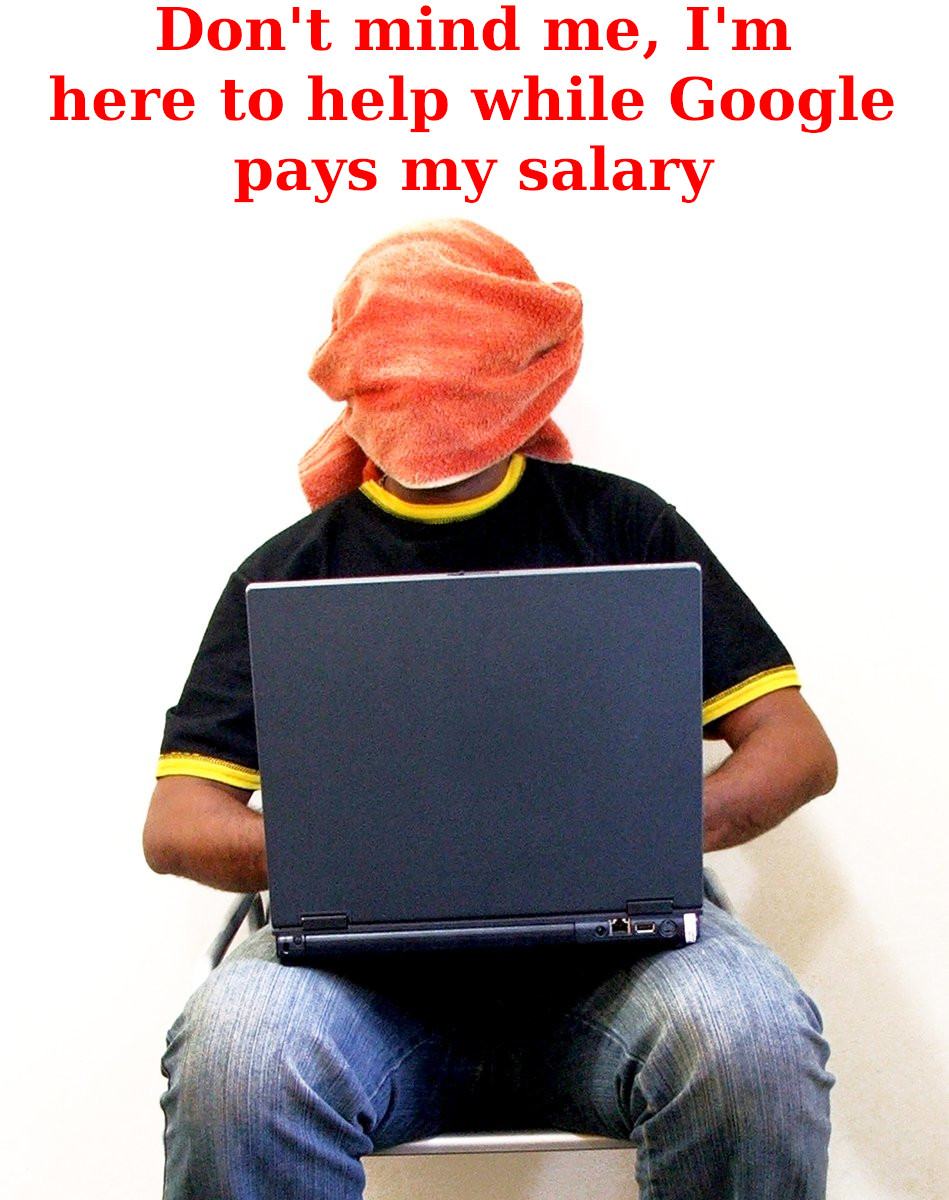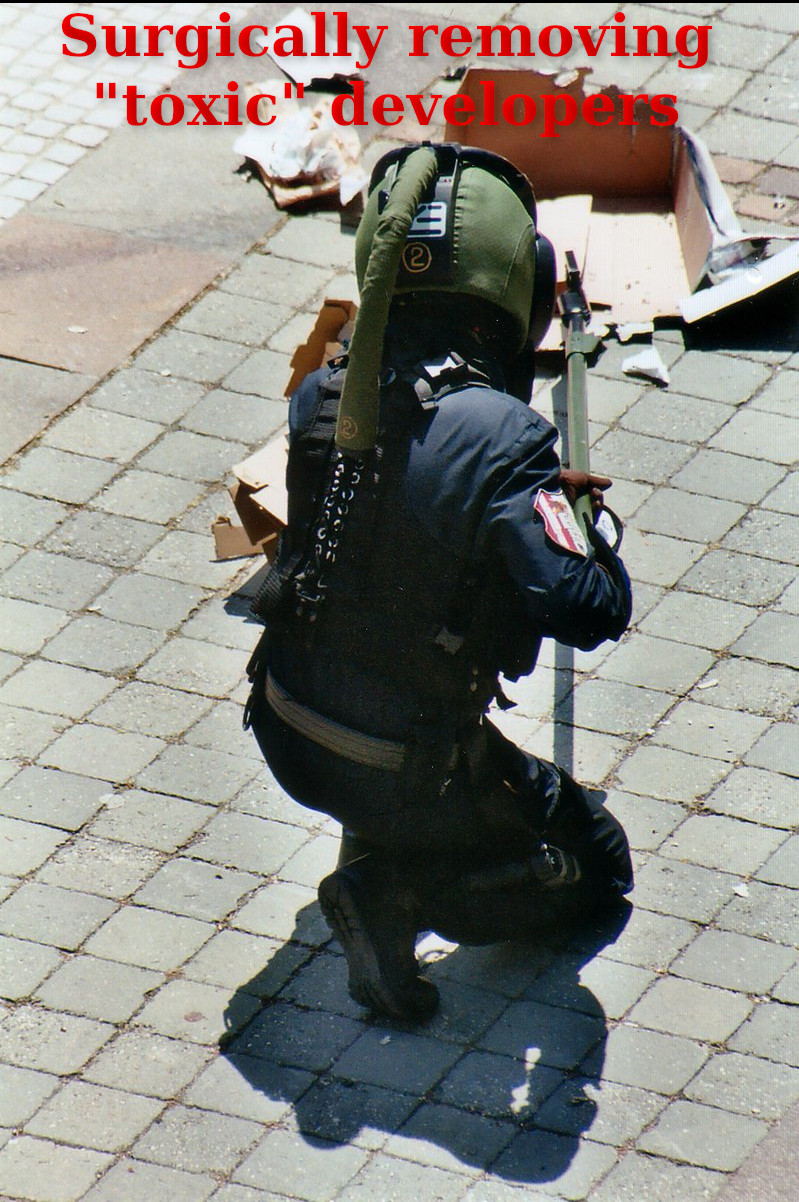

THE corporate domination or the occupation by corporations in our communities is real. It's a real problem, too. In IRC, for instance, we're subjected to provocation from at least one Google employee. Fake security is being promoted while those who insist on real security are getting demonised, talked down, sometimes abused and defamed.
"Fake security is being promoted while those who insist on real security are getting demonised, talked down, sometimes abused and defamed."One need not be 'anti-corporate' or 'anti-capitalist' or whatever (those terms are loaded and misleading by design; mostly straw men) to think that this is problematic. A lot of corporate capital flows in from the state and states generally want control over everything, either directly or via grifting corporations that set up the infrastructure (social control media that deplatforms, back doors in operating systems and hardware, to name just two among many more examples). The capital helps spread such systems far and wide, attaining network effect with adversary effects for those who shun them.
 An effective strategy is needed for identifying and tackling these issues. As we saw back in 2018 and 2019, even high-profile figures such as Linus Torvalds and Richard Stallman (respectively, Linux and GNU personified) can be made to shut up and hide for a bit. It's usually something to do with manners and sometimes about sensitive people.
An effective strategy is needed for identifying and tackling these issues. As we saw back in 2018 and 2019, even high-profile figures such as Linus Torvalds and Richard Stallman (respectively, Linux and GNU personified) can be made to shut up and hide for a bit. It's usually something to do with manners and sometimes about sensitive people.
We have a paradoxical world now. "Corporate Power" in 2021 is something along the lines of, "we bomb people but we protect you from "toxic" people who condemn bombings."
Also in 2021: "wear a mask, stay home, don't protest bombings. Protesting bombings means "spreading a virus", i.e. "killing people" and being a bad citizen in general..."
Hours ago IBM published this post which says (courtesy of the former editor of Linux Today who also temporarily worked for the Linux Foundation): "It’s one thing to have all the right signs in place that help new community members find what they need to use or contribute to the project. It’s often another thing to have them feel a part of the community. There are two paths to success here: the path of culture and the path of safety. [...] In a recent conversation, Sarah Finn, Agile Coach for Red Hat’s Community Platform Engineering team, highlighted one of the onboarding concepts she brings to the communities she fosters: "psychological safety." For Finn, the idea of psychological safety is about creating an environment where all community participants feel like they belong and can participate how they want. A community that deliberately creates an environment where all can actively engage."
 The term "Safety" is rather problematic here given how we saw it weaponised to silence Richard Stallman. They basically spin 'community' as something that isn't about safety but about protecting people from opposing views. They more or less protect people's emotions from challenge rather than protect people from physical harm. This situation is being further complicated and the water muddied by the fact that many people who point out objective and factual information can be subjected to endless abuse, directly or indirectly, from massive and monopolistic corporations. They have all the power and they squash the little (wo)man in the name of "protecting people"... we've seen it all before. In the context of police, cops become somewhat notorious for shouting "STOP RESISTING!" while they beat up defenceless people. Corporations (especially those that enjoy state-protected monopoly) can weaponise legal documents or informal guidelines (such as "CoC") to extend their reach and authority to communities they neither own/control nor employ. That's very dangerous.
The term "Safety" is rather problematic here given how we saw it weaponised to silence Richard Stallman. They basically spin 'community' as something that isn't about safety but about protecting people from opposing views. They more or less protect people's emotions from challenge rather than protect people from physical harm. This situation is being further complicated and the water muddied by the fact that many people who point out objective and factual information can be subjected to endless abuse, directly or indirectly, from massive and monopolistic corporations. They have all the power and they squash the little (wo)man in the name of "protecting people"... we've seen it all before. In the context of police, cops become somewhat notorious for shouting "STOP RESISTING!" while they beat up defenceless people. Corporations (especially those that enjoy state-protected monopoly) can weaponise legal documents or informal guidelines (such as "CoC") to extend their reach and authority to communities they neither own/control nor employ. That's very dangerous.
Free software doesn't mean cost-free software you can download and learn. It's about freedom; monopolies aren't freedom. Communities help foster a sense of collective freedom, decentralised to some degree and protected from abuse of power by means of forking (which the software licences make perfectly legal).
"IBM has protected their software from forking by making it very large and interdependent," Ryan notes. "That subverts the notion of breaking it off and working on a part with a small group. systemd has grown bigger than Linux, I think. How do you fork any of that? Maybe in the sense of cherry-picking patches and then throwing it out and rebasing, but that's all." ⬆